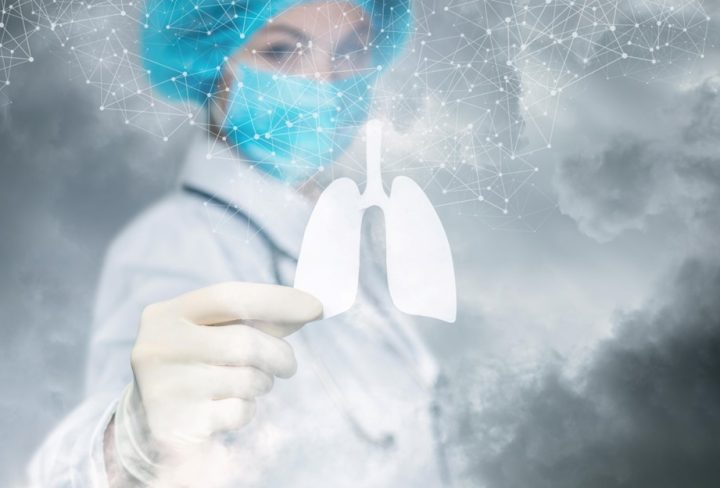Undergoing a lung transplant is a life-changing procedure that requires careful post-operative care to ensure a successful recovery and maximize the benefits of transplantation.
Post-Operative Care for Lung Transplant
After undergoing lung transplant surgery, recipients require specialized post-operative care to monitor for complications, prevent organ rejection, and promote healing. The following are essential components of post-operative care for lung transplant recipients:
- Monitoring: Recipients are closely monitored in the intensive care unit (ICU) immediately following surgery to assess vital signs, oxygen levels, and respiratory function. Continuous monitoring allows healthcare providers to detect and address any complications promptly.
- Pain Management: Pain management is a critical aspect of post-operative care to ensure the comfort and well-being of lung transplant recipients. Pain medications are administered as needed to alleviate discomfort and facilitate recovery.
- Mechanical Ventilation: Some recipients may require mechanical ventilation in the immediate post-operative period to support breathing and optimize oxygenation. Mechanical ventilation is gradually weaned as the recipient’s lung function improves.
- Immunosuppression: To prevent organ rejection, recipients receive a combination of immunosuppressive medications, such as tacrolimus, cyclosporine, mycophenolate, and corticosteroids. These medications suppress the recipient’s immune system and reduce the risk of rejection but also increase the risk of infection.
- Infection Prevention: Lung transplant recipients are at increased risk of infection due to immunosuppressive therapy and the surgical procedure itself. Strict infection control measures, including hand hygiene, aseptic techniques, and prophylactic antibiotics, are implemented to reduce the risk of infection.
- Respiratory Therapy: Respiratory therapists work closely with lung transplant recipients to optimize lung function, promote airway clearance, and facilitate breathing exercises. Respiratory therapy sessions may include deep breathing exercises, coughing techniques, and the use of incentive spirometry devices.
- Physical Therapy: Physical therapists play a crucial role in post-operative rehabilitation by promoting mobility, strength, and endurance. Physical therapy sessions focus on gentle exercises, ambulation, and activities of daily living to facilitate recovery and prevent complications such as muscle weakness and joint stiffness.
- Nutritional Support: Proper nutrition is essential for wound healing, immune function, and overall recovery after lung transplant surgery. Registered dietitians assess recipients’ nutritional status and provide dietary guidance to meet their unique needs and optimize outcomes.
- Psychosocial Support: Lung transplant recipients may experience emotional and psychological challenges during the recovery process, including anxiety, depression, and adjustment difficulties. Psychosocial support services, such as counseling, support groups, and peer mentoring, are available to address recipients’ emotional needs and promote coping skills.
- Follow-Up Care: After discharge from the hospital, lung transplant recipients require ongoing follow-up care to monitor for complications, assess graft function, and adjust medication regimens as needed. Regular follow-up appointments with the transplant team are scheduled to ensure continuity of care and long-term success.
Recovery Time After a Lung Transplant
The recovery time after a lung transplant varies depending on individual factors such as overall health, the underlying cause of lung disease, and the presence of complications.
In general, patients can expect a gradual improvement in symptoms and functional status over the first few months following surgery, with full recovery typically taking several months to a year. Patients need to follow their doctor’s recommendations for post-operative care, including medication adherence, rehabilitation exercises, and lifestyle modifications, to optimize their recovery and long-term outcomes.
Advantages of Lung Transplantation
Lung transplantation offers several advantages for individuals with end-stage lung disease, including:
- Improved Quality of Life: Lung transplant recipients often experience significant improvements in symptoms such as shortness of breath, fatigue, and exercise intolerance, leading to a better quality of life and increased independence.
- Prolonged Survival: Lung transplantation can extend the lifespan of individuals with end-stage lung disease, allowing recipients to enjoy more time with their loved ones and pursue their goals and interests.
- Increased Mobility and Function: With improved lung function and respiratory capacity, lung transplant recipients can engage in physical activities, hobbies, and social interactions that were previously limited by their illness.
- Resolution of Underlying Disease: Lung transplantation addresses the underlying cause of end-stage lung disease, such as chronic obstructive pulmonary disease (COPD), interstitial lung disease (ILD), or cystic fibrosis (CF), providing long-term relief from symptoms and complications associated with these conditions.
- Opportunity for New Beginnings: For many recipients, lung transplantation represents a second chance at life and an opportunity for a fresh start. It offers hope and optimism for the future, inspiring recipients to embrace life to the fullest and pursue their dreams with renewed vigor.
Lung transplantation is a complex and life-changing procedure that offers hope and improved quality of life for individuals with end-stage lung disease.


